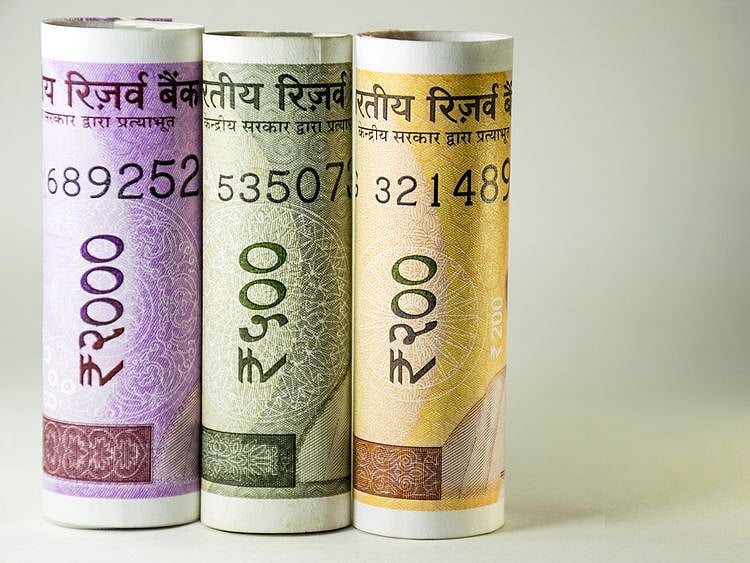India Budget 2022-23: Rupee firms up against dirham as Finance Minister unveils big spending
Nirmala Sitharaman’s spending push has India’s stock markets and rupee heading higher

Dubai: The rupee is firming up as the Indian Finance Minister targets 9.2 per cent GDP growth for the 2022-23 financial year and rolled out investment programmes that targeted the agriculture and transport sectors. The rupee started the day at 20.20/20.22 to the dirham, and is now higher at 20.18.
The Indian stock markets also seem pleased with the initial set of initiatives from Nirmala Sitharaman, presented as part of the Union Budget for the new financial year starting April 1.
Rupee goes digital
From next year, the rupee will take on new digital ways too. A ‘digital rupee’ will be introduced by the Indian central bank using blockchain technology. "The announcement of the imminent launch of an RBI-backed 'digital rupee' is a welcome move and carries forward India's push towards greater digitization of financial services," said Adeeb Ahamed, Managing Director at Lulu Financial Holdings.
Indian expats await rupee move
“Going by transaction volumes, Indian expats in the UAE are clearly waiting to see what the Budget will do for the rupee short-term,” said a currency house spokesperson. “The usual spike in rupee remittances typical of the final week of a month was absent last month. It had everything to do with waiting for the Budget.”
According to currency exchange businesses in the UAE, the rupee-dirham trade could be confined to a range of 20.18-20.35 for a dirham in the next few days.
“We are in a strong position to withstand challenges,” said Sitharaman, as she reset the growth trajectory from the forecasted 8-8.5 per cent to 9.2 per cent.
Transportation gets high priority
While a continued emphasis on the railway infrastructure is to be expected with every Indian budgetary exercise, this time the focus is also there on cargo terminals. The target is to build 100 such terminals in the next three years.
UAE/Gulf based enterprises could be interested in the cargo terminal possibilities, according to sources here
Digital asset sales will feel the tax heat
Income from digital asset transactions will be taxed at 30 per cent. The Indian Finance Minister Nirmala Sitharaman also confirmed there will be no deduction while computing income except when it comes to cost of acquisition of the asset. “A 30% tax on sale or gift of virtual digital assets is a bold move to curb potential money laundering,” said Pankaj S. Jain of AskPankaj Tax Advisors. “Taxation will bring the so-far unregulated sector under the government purview.
5G ready
India is finally speeding up the transition to 5G super-speed telecom services. Auctions to sell off spectrum space will happen this year itself, according to Sitharaman.
Network Links
GN StoreDownload our app
© Al Nisr Publishing LLC 2025. All rights reserved.